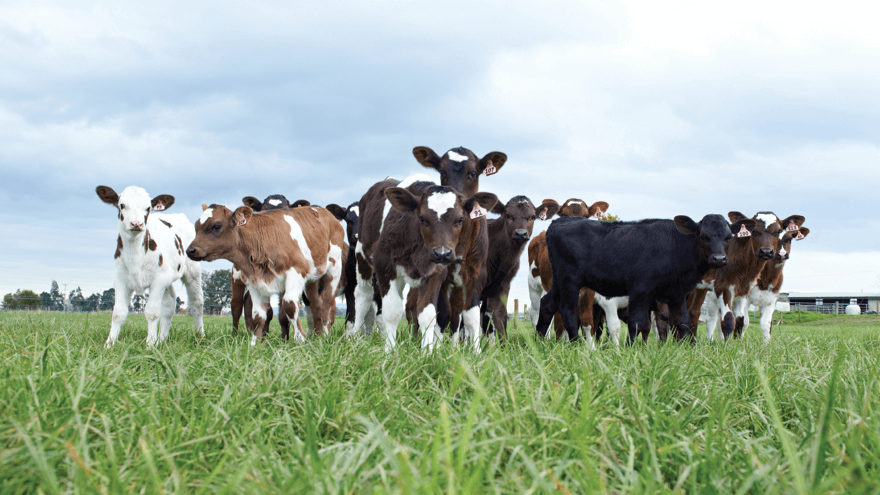
Fresh water matters
While some may say calves get enough water from colostrum, vat milk or Calf Milk Replacer (CMR), they still need to consume fresh water to encourage rumen development. The sooner the rumen is functional and working well, the faster calves can move from an expensive and predominantly milk-based diet to a cheaper diet of calf meal, pasture, hay or baleage.
A calf drinking 5 L of vat milk is drinking on average 4.3 L of water a day. Vat milk contains on average 85 to 87 percent water with the rest made up of protein, fat and lactose. First milking 'gold' colostrum contains more milk solids and less water; solids content is closer to 25 percent, meaning colostrum contains around 75 percent water. CMR water content varies on the CMR reconstitution rate but is closer to vat milk than colostrum.
With milk-fed calves consuming so much water, why is it so important to encourage them to drink fresh water? Calves need water for two reasons: to stay hydrated and healthy (with milk contributing to this aspect of water consumption) and to support rumen development allowing a calf to successfully move from a milk-based diet to solid based diet.
The water content within milk does not promote rumen development, so milk-fed calves receiving just milk and no fresh water take longer to develop their rumen. When a calf sucks milk from a teat, milk passes through the oesophageal groove, arriving directly at the fourth 'true' stomach, the abomasum. The opposite is true when a calf drinks water as the oesophageal groove isn’t activated and water drops into the rumen. Combined with calf meal consumed by the calf, the rumen water and calf meal start to ferment, producing acids which drive the development of rumen papillae and the rumen wall.
Calves who are not offered drinking water consume on average less calf meal and have a less well-developed rumen compared to calves accessing fresh water. A classic research study¹ found that calves accessing fresh water had better intakes of starter meal and improved weight gain. It’s also important to note that calf owners are required under the Animal Welfare Act (1999) to provide 'proper and sufficient water' to stock at all times.
Water quality encourages water consumption. Empty and clean water supplies daily, or at any time your water supply has been fouled by faeces or feed. Calves should not be fed from the farm water supply if minerals such as Magnesium have been added through an in-line water dispenser.
When feeding Gusto 20% Crude Protein (CP) calf blend as a starter feed, ensure water is readily available. Both Gusto 20% CP calf blend and water fed separately from milk can successfully convert a calf from a simple-stomached animal to one with rumen capable of converting pasture into liveweight gain.
Visit your local PGG Wrightson store, you’ll find everything you need to set up your calf rearing shed and ensure a productive future for your calves.
¹Kertz et al., (1984). Journal Dairy Science. 67, 2964-2969.



